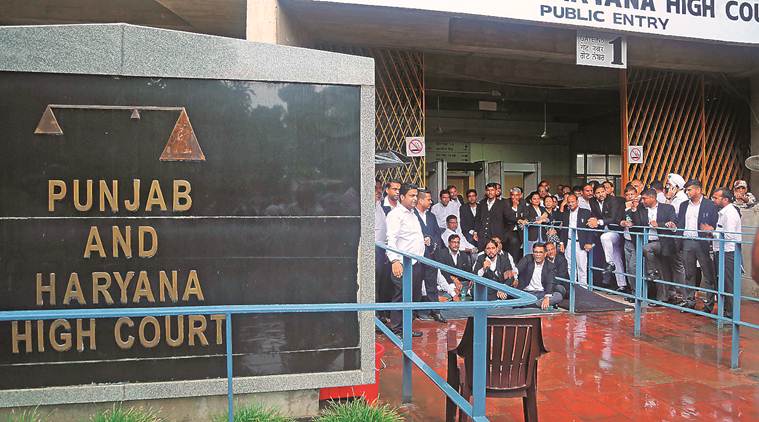 “The act also violates the right of equal opportunity enshrined in the Constitution,” reads the judgement.
“The act also violates the right of equal opportunity enshrined in the Constitution,” reads the judgement.
The classification of students into sections on the basis of their marks is a violation of fundamental right of elementary education, the Punjab and Haryana High Court has ruled while observing that such a practice has the tendency of creating a feeling of inferiority among children securing less marks.
“The act also violates the right of equal opportunity enshrined in the Constitution. If an action induces a sense of inferiority in a child, it is being denied the right to development and growth at par with a child who does not suffer from such feeling of inferiority,” reads the judgment passed by Justice Sudhir Mittal.
In the verdict pronounced Friday, the HC also said that the institutions providing elementary education are bound to create a free and open atmosphere that promotes a sense of equality. “Any action which promotes inequality cannot be permitted,” the single bench further said.
The verdict has come in a matter where a parent of a child studying in a private school in Faridkot had challenged the institution’s decision to classify children, from class VI onwards, into sections on the basis of marks secured in the previous examination.
Another parent had also raised a similar grievance before the school principal saying their child had become extremely upset as she could not make it to the top section and had even taken “the extreme step of gulping liquid hand wash in an attempt to end her life”.
The Punjab State Commission for Protection of Child Rights had taken cognizance of the matter in June 2019 and directed the the school, two months later, to discontinue the practice. The school failed to implement the order. When the Deputy Commissioner also asked it to implement the Commission’s order, the school responded that the order will be implemented after conclusion of the half-yearly session. In the meantime, the school and some parents of the children of the “top section” approached the Commission for review of the August order. The modification was allowed and the school in September 2019 was allowed to continue with the classification till the end of academic session.
While the petitioner, the parent who took the matter to Commission, approached the High Court seeking implementation of the August 2019 order and quashing of the September 2019 order, the school too moved the HC seeking directions that it be allowed to carry on with the practice of grouping children into sections on the basis of their marks. It sought quashing of both the orders.
Punjab government supported Commission’s order and said that the modern trend of education is to make the same stress free and that is why the system of grading has been introduced. The school’s action is contrary to that thought process, said the state government. Pertinently, the August 2019 order was passed by Punjab Principal Secretary to Department of Social Security and Child Development, while exercising the powers of the Commission, which was not constituted then by the government.
Justice Mittal in the ruling observed that education is not “bookish knowledge alone” and it is an inclusive concept aimed at all round development of child. “Thus, a child is entitled to an atmosphere conducive to all round development. Necessarily, stimuli, which impair such development have to be kept out. It is the duty of a school to ensure that children are not subjected to negative inputs, which have the effect of inducing a feeling of inferiority,” reads the judgement.
Observing that the Faridkot Deputy Commissioner should have taken remedial action immediately after receiving the August 2019 order from the Commission, the HC also said that the Commission could not have modified the order especially without notice to the petitioner.
The September 2019 modification order, by which the school was allowed to continue the practice till the end of academic session, has been held to be illegal and without jurisdiction. The single bench has said the law does not allow the Commission to review its own orders.